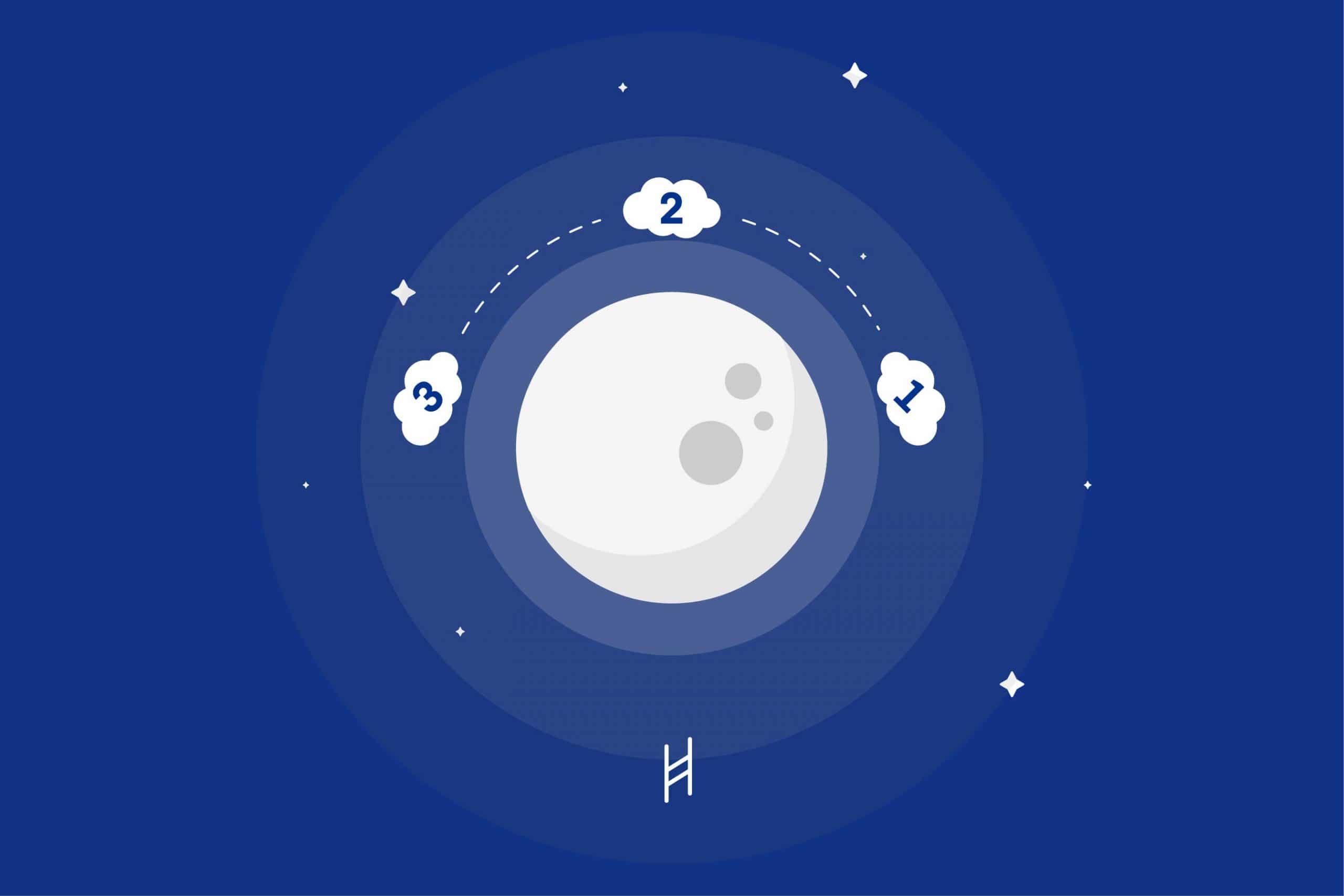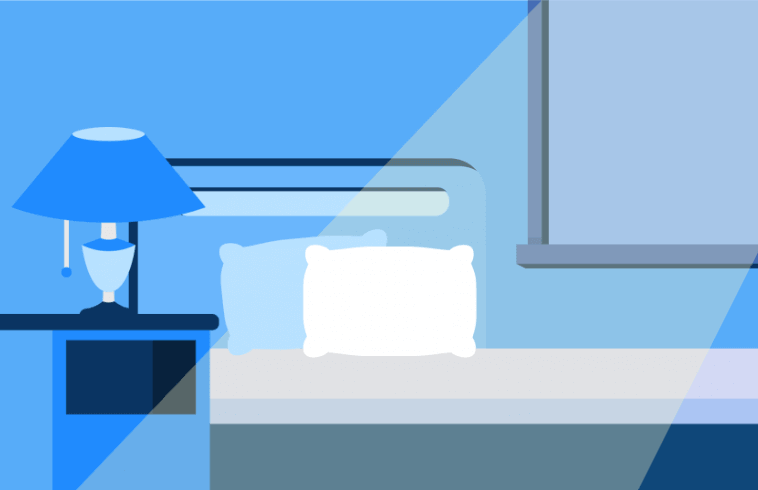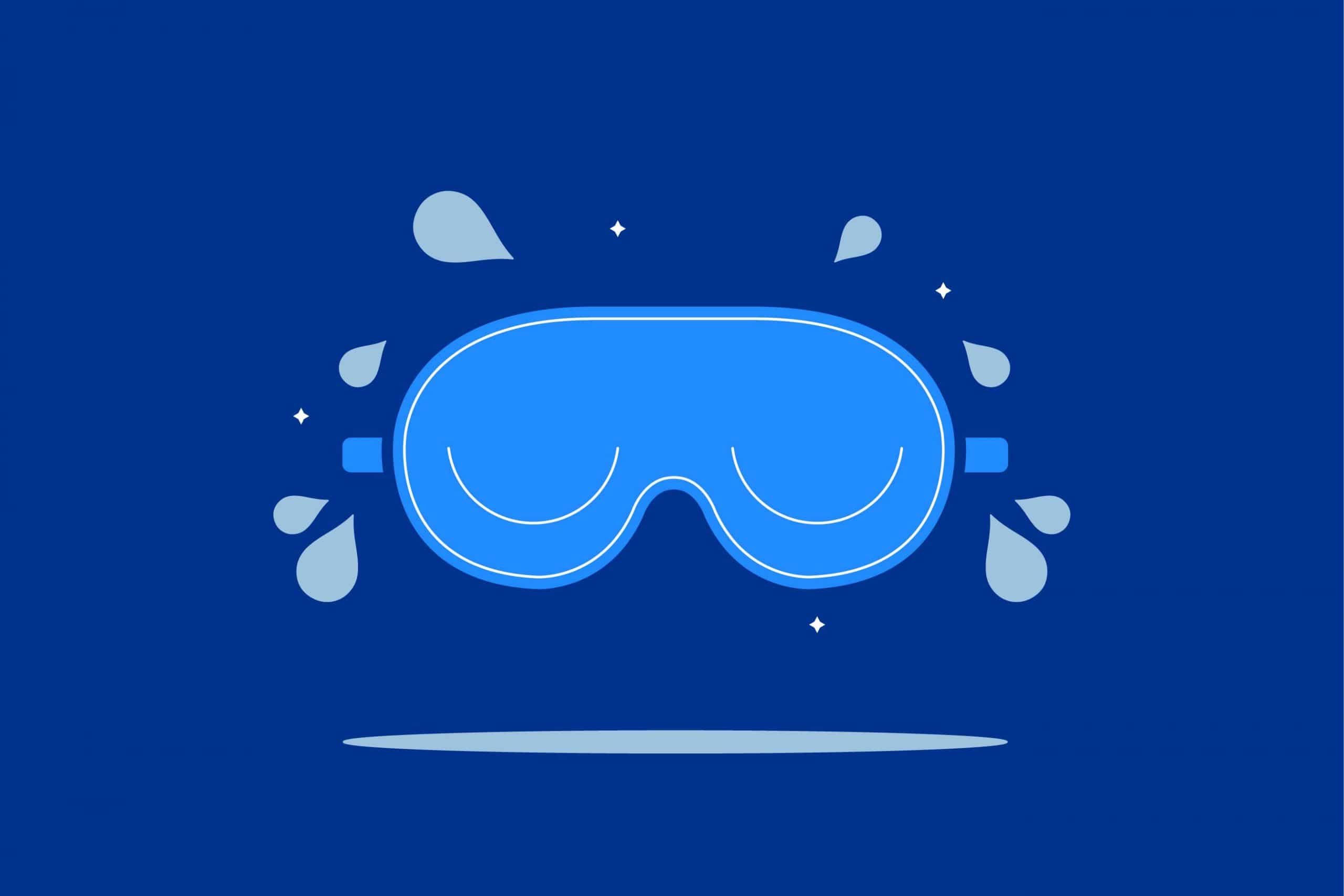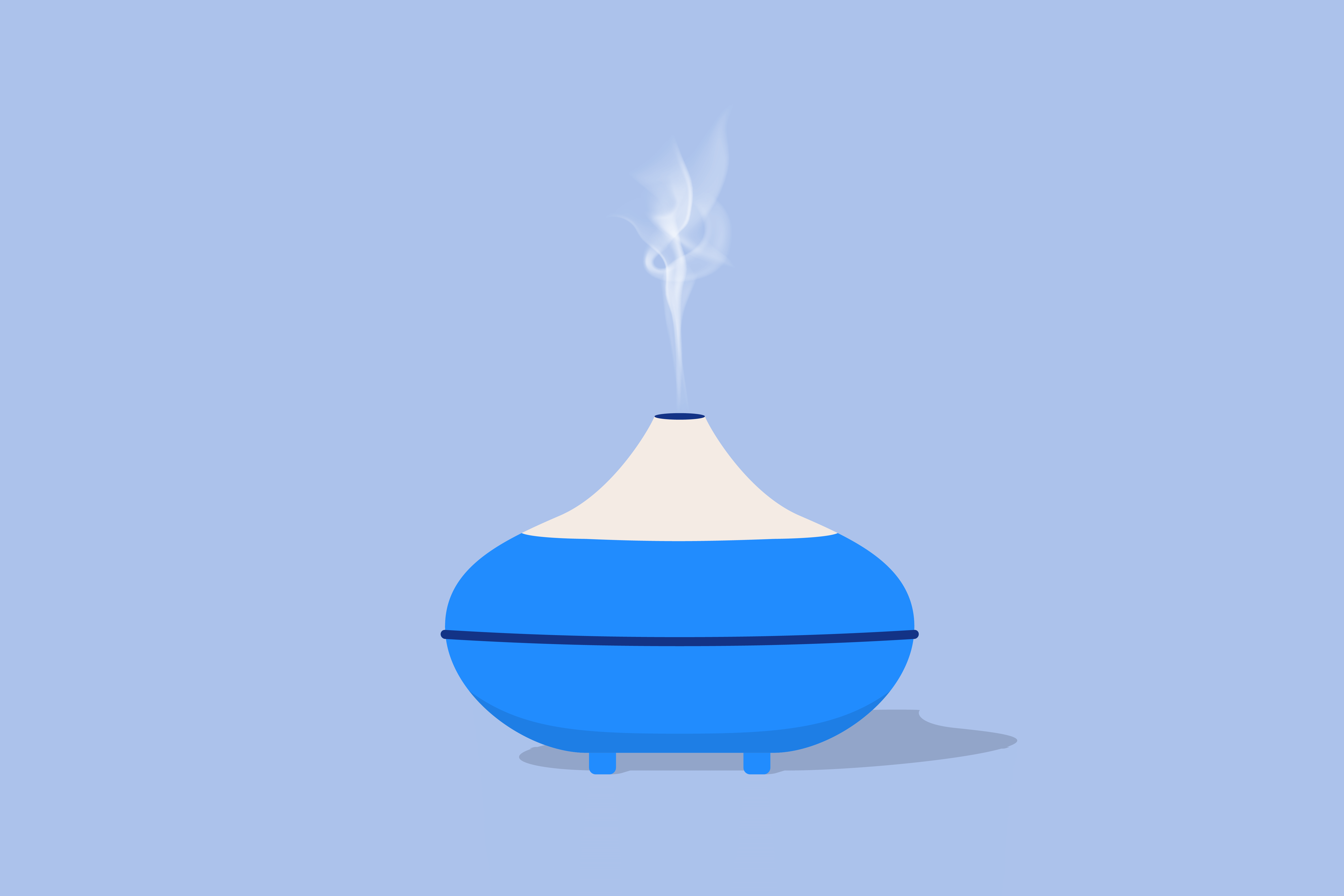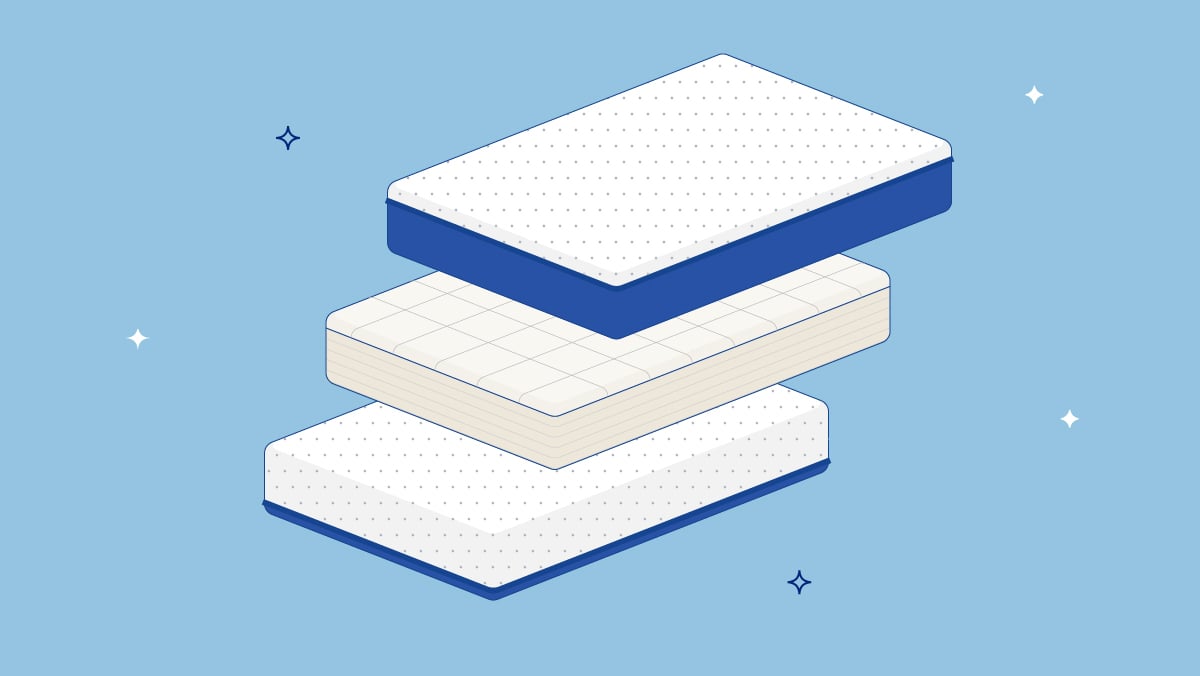
It’s no secret that sleep is a key factor in a person’s health, mental fitness, and overall wellness. Adequate sleep has been shown to improve memory, extend our life expectancy, and improve your productivity. Verified Source National Sleep Foundation Nonprofit focused on educating about sleep health. View source And not getting enough of it puts us at risk for chronic health conditions, makes us more accident-prone, and can even lead to weight gain.
But what if it isn’t just our health that’s at risk? More and more studies are showing that sleep also impacts happiness, relationships, and positive thinking.
We wanted to know more, so we asked over 2,000 people to tell us about the quality of their sleep, their happiness, and their relationships. Here’s what we learned.
Does Sleep Make Us Happy?
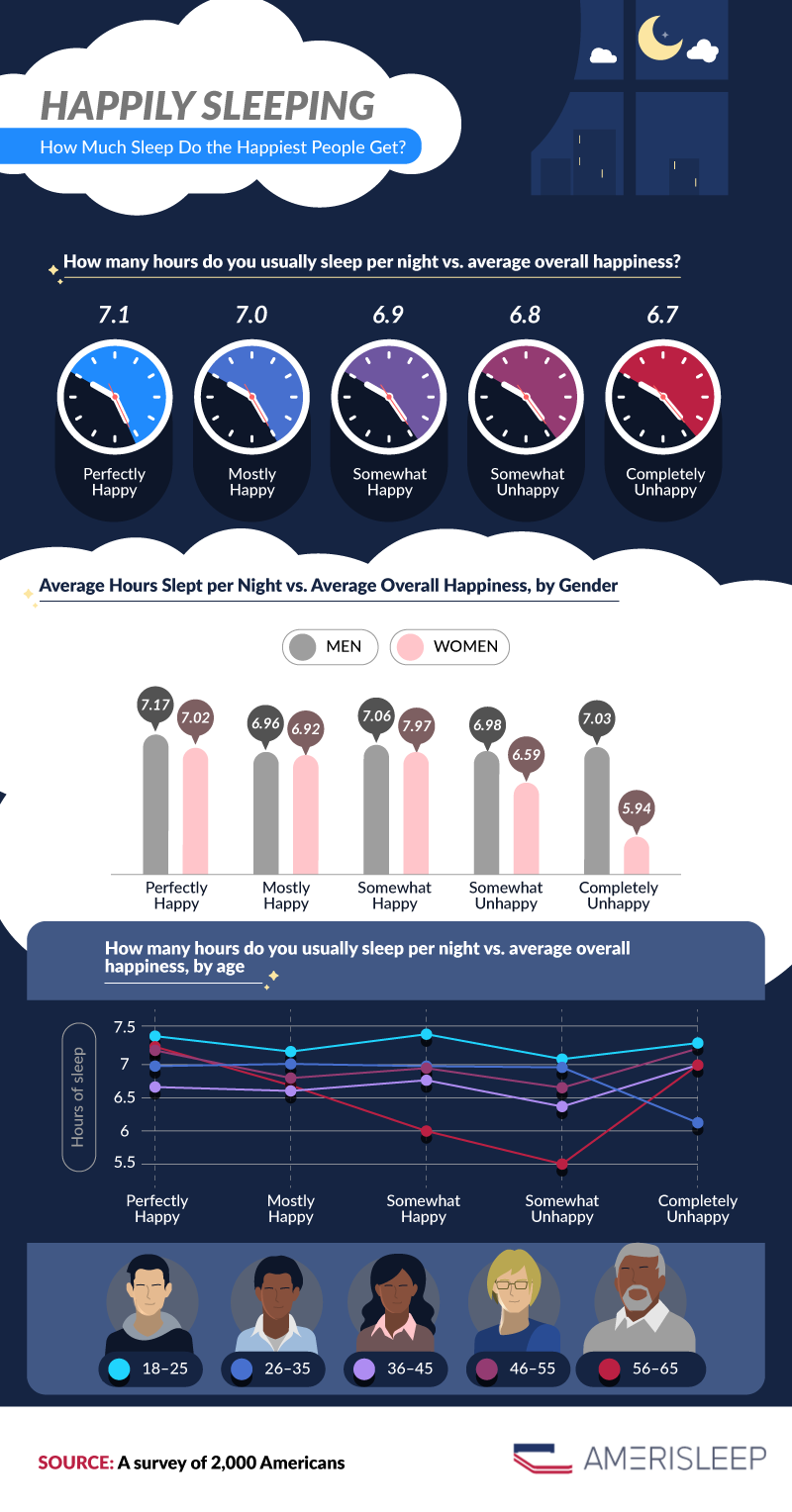
As you may have guessed, the link between happiness and a good night’s sleep is a strong one. Those who reported being somewhat unhappy or completely unhappy got an average of less than seven hours of sleep per night, while “perfectly happy” people reported slightly over seven hours per night.
The time difference is a relatively small one, with perfectly happy people getting only about 24 minutes more sleep per night than completely unhappy people, but even that little bit of extra sleep seems to make a big difference. One study discovered that even a single hour of extra sleep reduces inflammation and health risks.
When we break down our findings by gender, the results get even more interesting. Women, on average, get less sleep than men, but their sleep habits seem to correlate more strongly with their happiness. Men across all happiness categories get between 6.9 and 7.1 hours of sleep per night, on average. Women, on the other hand, report anywhere from 5.9 to 7.0, with those reporting the fewest hours of sleep also reporting the lowest happiness and, those getting the most sleep report the highest happiness levels.
Age also makes an interesting difference in the data, with those 25 or younger more likely to get a lot of sleep regardless of their happiness level.
Does Sleep Connect Us?
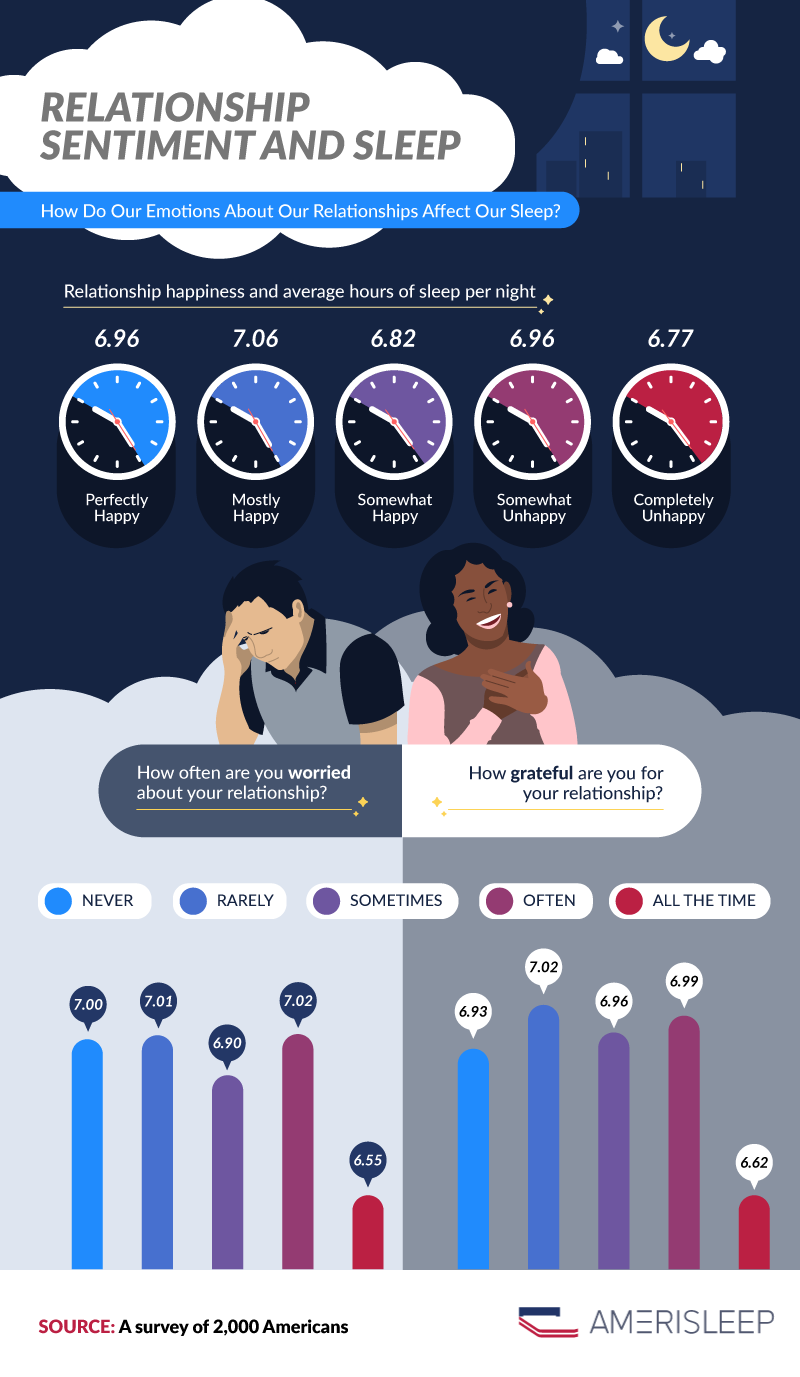
If sleep impacts our overall happiness, can it also harm our relationships? We asked our survey respondents how happy they were at home and charted those answers back to the quality of their sleep to find out.
Interestingly, for those who are perfectly, mostly, or somewhat happy and for those who are somewhat unhappy in their relationships, the connection to sleep doesn’t seem to be a strong one. Those who worry often about their relationships get more sleep than those who worry sometimes. Those who report being perfectly happy at home get less sleep than those who say they’re mostly happy. For those who get between 6.8 hours and 7 hours per night, feelings about relationships vary greatly.
For those who get less sleep, however, the story is a different one: In every single category – happiness in relationships, gratitude for relationships, and worry – those who got the least sleep also had the worst outcomes. Less than 6.8 hours of sleep meant complete unhappiness in relationships, constant worry, and never a shred of gratitude. The only question that remains is: Is sleep impacting healthy family relationships or are bad relationships impacting sleep?
Single People Sleep Better
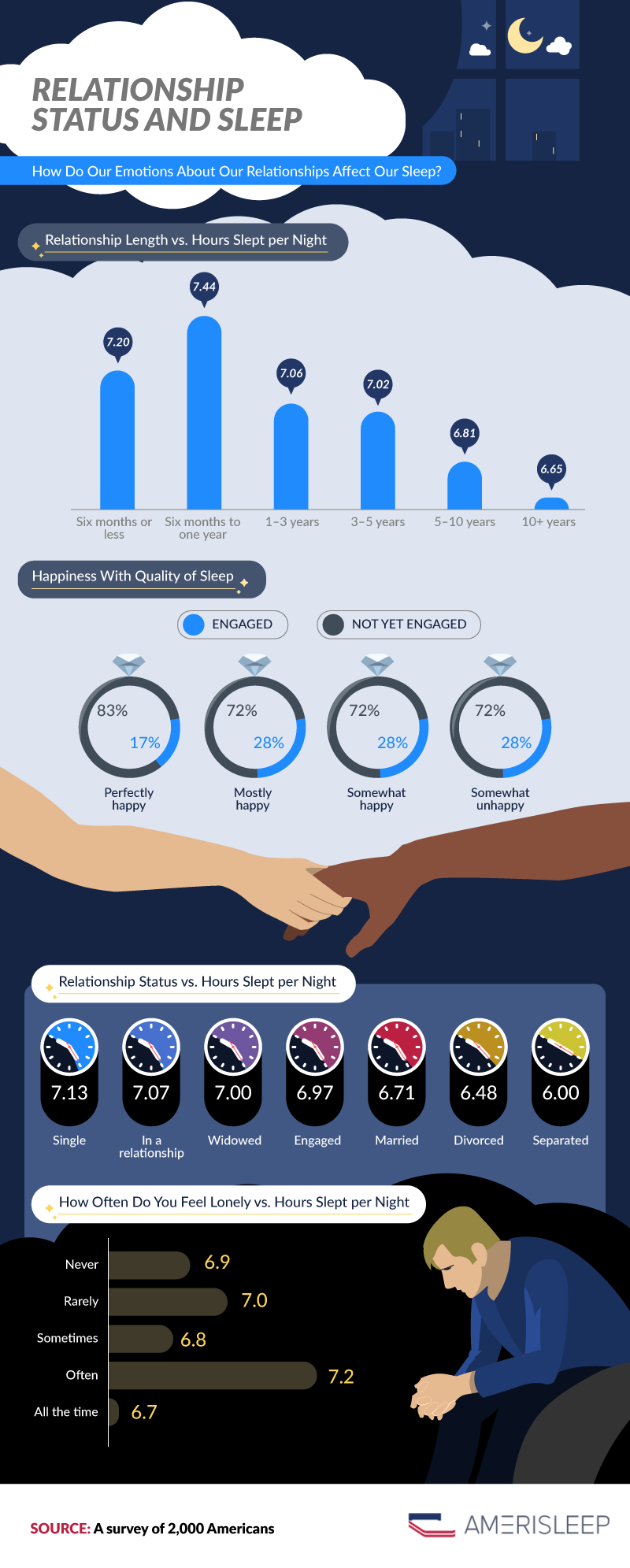
According to our survey, if you’re in a bad relationship, you’re also not getting a lot of sleep. But what about if you’re in no relationship at all? Turns out, single people get the most sleep of any group in our survey, and separated people get the least.
Interestingly, sleep quality also appears to generally decline the longer a couple is together, perhaps due to outside factors like children, mortgages, and the other big commitments long-term couples are more likely to face.
The Habits Of Great Sleepers
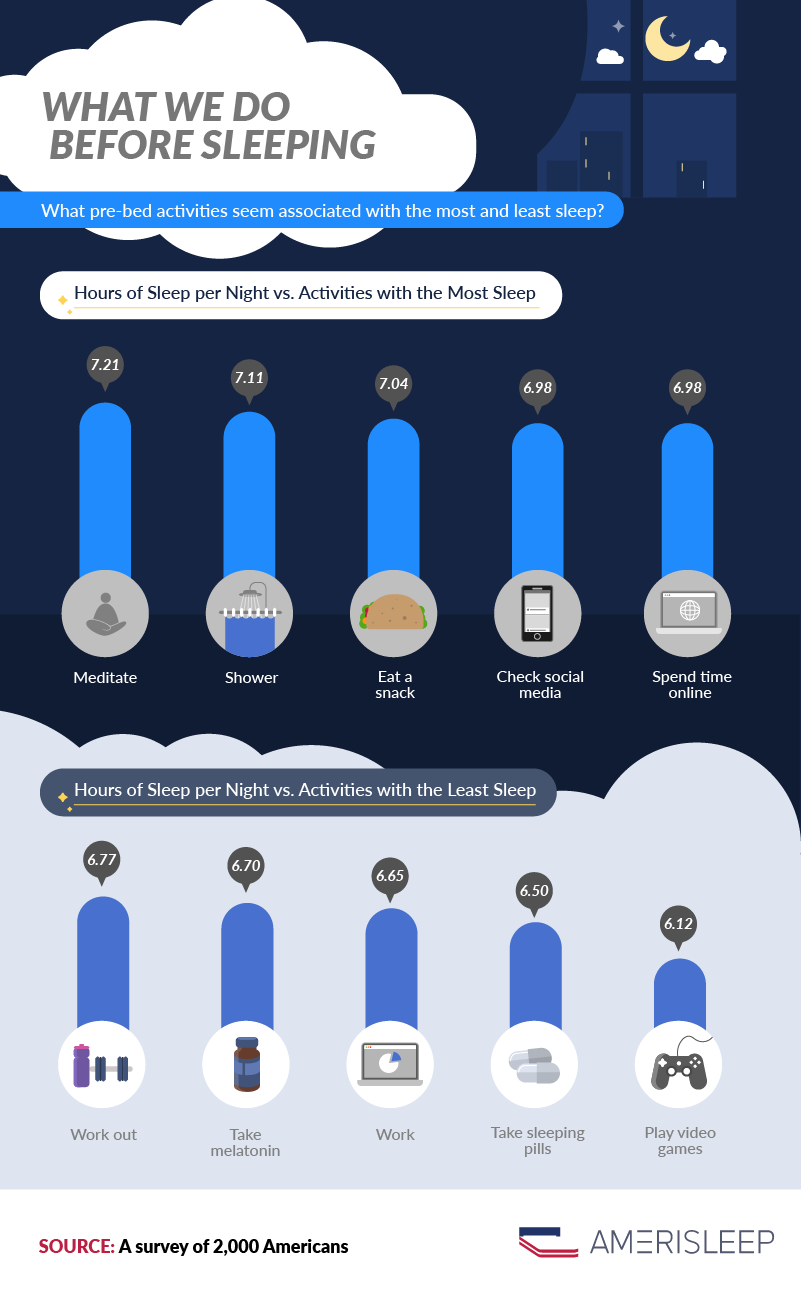
It’s well established that medication impacts our sleep, but which drugs make it better, and which make it worse?
According to our survey, those with the most sleep were taking cold medication, antiarrhythmics (heart meds), or another prescription medication. Those catching the least Z’s were more likely to be on nicotine replacements (like a patch), sleep-inducing tea, or allergy medications (including Benadryl).
Comfort, Silence, And Sleep
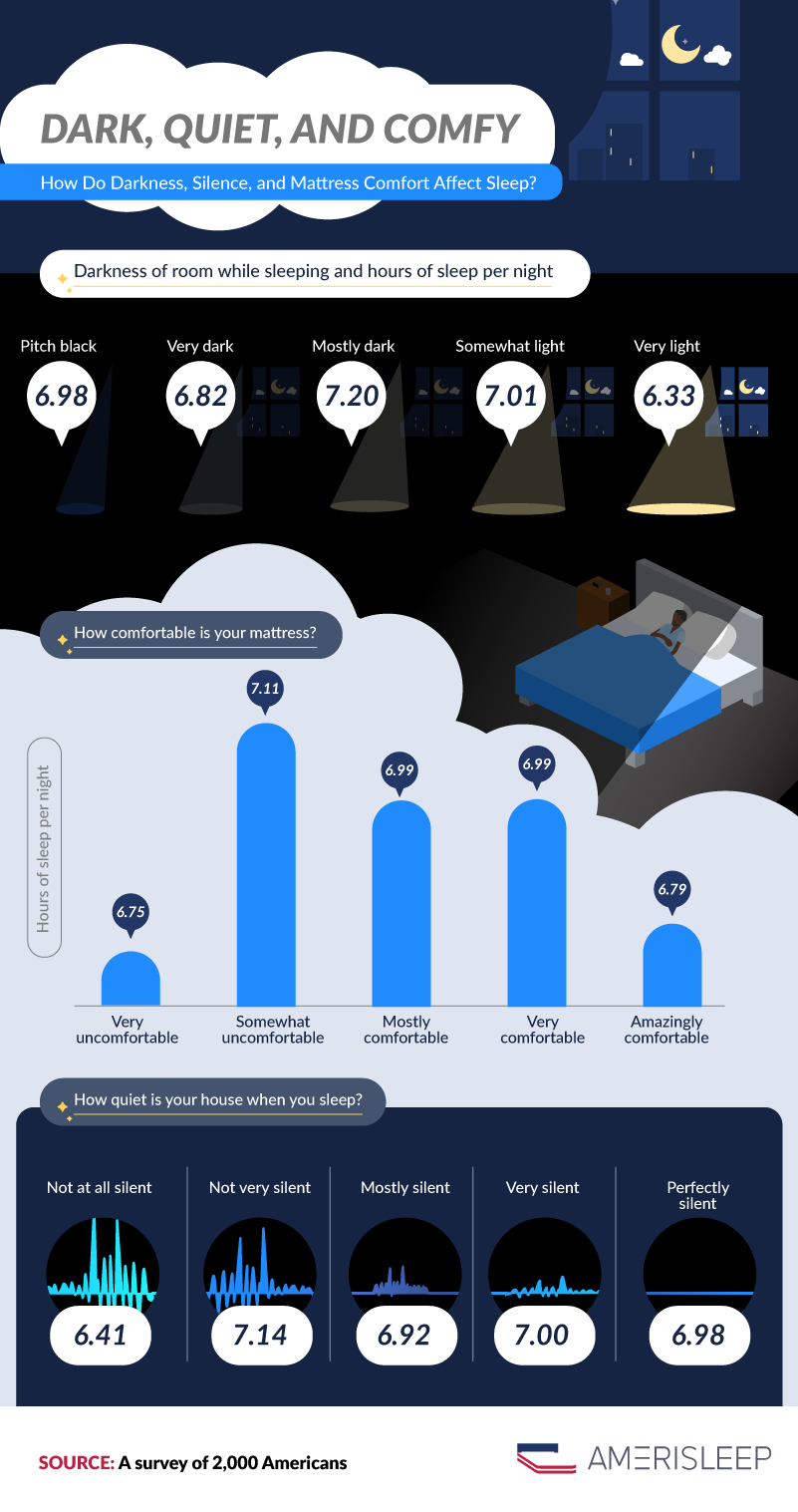
Good news for those in noisy neighborhoods with uncomfortable mattresses and light filtering in through the blinds: Survey says that a little noise and discomfort aren’t strongly correlated with sleep quality. Those with a small amount of light in their rooms, a somewhat uncomfortable mattress, and a not very silent house all reported getting pretty good sleep.
Light, comfort, and noise do matter, of course, but only when they are significant. Those reporting a “very light” room, a “very uncomfortable” mattress, or a “not at all silent” house got much less sleep than any other group.
In Summary
It’s pretty clear that people who sleep well are also happier, and those who get the least sleep are also the most likely to be unhappy, lonely, and less grateful in their relationships.
People that responded that their mattress was somewhat uncomfortable should probably look to see if they can get a better mattress for their needs, so they can get more restful sleep in less amount of time.
It’s also pretty clear that our habits matter: Relaxing before bed is good for sleep, while working late into the night is not. Extremely noisy, bright, or uncomfortable sleep environments also matter, which is why things like good quality curtains and a comfortable mattress are good investments.
Methodology
We surveyed 2,000 Americans about their relationships, sleep habits, sleep conditions, and the amount of sleep they get per night.
Fair Use Statement
Rest easy knowing that we grant permission for you to share the images found here in your publication. Just don’t sleep through the alarm: We request that you link back to this page to give the authors proper credit.
About the author
McKenzie Hyde is a Certified Sleep Science Coach and a full-time writer specializing in sleep health and the mattress industry. With a Master of Arts degree in literature and writing from Utah State University, McKenzie combines her passion for writing with her in-depth knowledge of sleep science. Her articles cover a wide range of topics, including best sleep practices for students, the consequences of sleep deprivation, and choosing the right mattress for back pain relief. McKenzie's dedication to delivering accurate and informative content makes her a valuable contributor to the field of sleep health.
View all posts